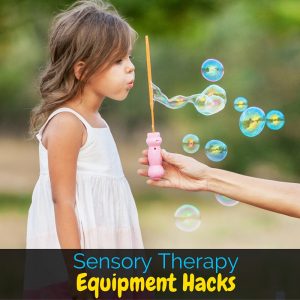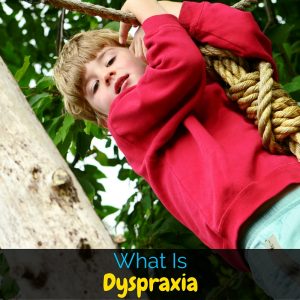I know there’s a big debate around diagnosing children with various delays, disorders, and disabilities, especially in the homeschooling world. Many families choose to homeschool in part to avoid the school putting “labels” on their child. If you are one of those families, that’s great! We, however, are not..
I currently have three children with a fourth on the way. Mr. C is gifted in the academic sense of the word, A-Man has sensory processing disorder, dyspraxia, an expressive language delay, and autism. Baby M has a global developmental delay that we’re working with genetic counselors to diagnose further. We have fought hard to get our children’s various diagnoses, and we’ll continue fighting to get further diagnoses as needed.
Today I’m sharing why we are thankful for the diagnoses that we’ve been able to get so far, and why I don’t feel negatively about giving my children “labels”.
Thankful for Diagnoses and “Labels”
We Were Lost Before Them
My son A-Man was born 6 weeks early. He was in the hospital for 11 days hooked up to tubes and machines. When you have a preemie, there’s a lot of talk about “catching up”. Typically children catch up by two years old.
When A-Man took longer than average to crawl? No problem, he’ll “catch up”. When Baby M refused to eat any food other than breast milk? Just keep trying, he’ll “catch up”.
Sure, A-Man is now on par for his height and weight, but when your son has extreme melt downs constantly? They’re just being manipulative. Or when your toddler has no interest in walking? You just carry them too much. Or when your preschooler has a panic attack whenever he is near pasta? If that’s all you gave him he’d eventually eat. We were told things like this over and over again, but I knew it wasn’t true. Not with my sons.
Once I finally convinced the boys’ Dr’s to get them evaluations, we found within the first month of therapy we had words to explain what was happening. A-Man wasn’t throwing a fit, he was experiencing sensory overload. Baby M wasn’t being picky, he had extreme sensory aversions. It was like I’d been wandering in the dark for years and someone finally turned on the light.
It Explained What We’d Been Seeing
I’ll admit, getting all of the diagnoses so close together was a bit overwhelming to me. It just seemed to be so real. I mean, for quite a while I’ve told people A-Man has “sensory issues” or that Baby M was “catching up”. That just seems so much smaller and less intimidating than “sensory processing disorder” or “global developmental delay”. Not to mention dyspraxia, I hadn’t even heard of that before!
It was so helpful to understand what was happening with our children, though! We quickly learned about the importance of heavy work, sensory diets, “crash and bashing”, transition objects, oral sensory input, and so much more. So many of the behaviors we had been struggling with became so much more manageable simply because we knew there was a reason behind it. We were able to understand why Baby M could tolerate sucking his thumb or breastfeeding, but he couldn’t tolerate bottles or solid foods.
Along with all of the knowledge that the diagnoses gave us, they also gave us practical steps to take to work with the boys. We were able to slowly increase A-Man’s functional vocabulary. We were able, through intensive feeding therapy, to get Baby M not only eating purees, but he now eats almost everything he is offered. We learned different discipline techniques that worked with the way that the boys’ brains process information. Learning all of this has been an incredible blessing in our family.
It Helps Us Explain to Other People
Mr. C has grown up with his brothers and their special needs, so he is a lot more understanding about disabilities than most children. It warms my heart to hear him explaining to other people that “my brothers’ brains work differently than ours, so they sometimes do things differently and that’s okay”.
For other kids, though, it can be really hard to understand why A-Man doesn’t play with toys the same way or answer questions or why they can’t share their snack with Baby M even though he has teeth.
Getting the diagnoses have really helped us to explain these differences to make it easier for the boys to make friends. Of course, we don’t tell a preschooler that A-Man has autism and leave it at that, but having the diagnoses has given us the confidence to talk with kids about their differences.
Aside from kids, we’ve benefited from having diagnoses to explain to the adults in our kids’ lives. For way too long, A-Man was simply branded as a “bad kid”, and now we are more able to explain his differences to others.
While we don’t need to worry about teachers or IEP’s, we do have to deal with family, friends, church nursery volunteers, other moms on the playground, etc. Since we’ve gotten the diagnoses, we’ve had the opportunity to educate people and advocate for not only A-Man and Baby M, but for children with disabilities in general.
Disabilities are one of those things that unless you know someone personally affected, it can easily be something that you just don’t think about. We are able to give people specific examples to consider when dealing with disability issues.
The Bottom Line
I understand there are disagreements about “labeling” children. And I will do everything I can to not hold A-Man or Baby M back from anything due to their “labels”, but sometimes those labels are pretty dang helpful!
I can google dyspraxia and learn more about it. I can search Pinterest for sensory bins or other activities to help. I can tell our Sunday school teacher what A-Man needs to make it through the service, and give them a real reason instead of just “I’m his mom and this is what works to keep him from screaming”.
Overall, I am exceedingly thankful for my sons’ diagnoses. They make me better equipped to get them all of the help they need and helps others to understand those needs as well.
If you loved this post, you might also enjoy..





Our Terror Toddler, Boo, is delayed with his speech. We have a hearing test this week, and he’s also in speech therapy. Finding out *why* he’s speech delayed will go a long way to figuring out *how* to help him.
His issue seems to be the actual pronounciation of words. Honestly, I’m going to be quite shocked if he passes his hearing test. I suspect that there’s *something* going on there.
As to labels…really, it depends what’s done with them. Is it used to find services, therapies, etc? Or, is it used to ‘excuse’ things?
Give you an idea of what I mean: years ago, before I was hurt, I had baby Princess in the ‘toddler’ area of the community pool. It was supposed to be just for wee ppl, and at its deepest, reached my upper thighs. There was an older child, about 11 or so, hucking weighted diving rings into the pool. Narrowly missed baby Princess (who was very young, not more than 6 mths) and several other wee ppl.
Mom’s response? “He has ADHD…” She did *nothing* other than yell out his diagnosis. Sat there with her book. It wasn’t until ‘someone’ *cough* went to a life guard that the child was force to quit throwing weighted diving rings around.
Unfortunately, a few parents that view a dx as a white flag of surrender, rather than, “Ok. We know this is happening, how do we parent this child the way they need.” That’s what I mean by, ‘excuse things’.
You are so right, Melissa! In my house, I’ve been saying that I’m thankful that we have a name, so now I know what I’m attacking! So many different ways to help him have come from knowing what is going on.
It’s true though that many parents see it as a white flag and use it to excuse their child from any sort of behavior issues.
With your toddler, I’m wondering if it may be Apraxia of Speech. I’m no expert of course, but a sweet little boy I know has that and he struggles with pronouncing words with certain sounds. Speech therapy is a Godsend, isn’t it?
Thank you for your comment!
I would much rather be “autistic” than “a misfit screw-up that needs to try harder.”
I so, so agree. That’s the main reason that I was so thankful to get some “names” for what was/is going on with A-Man. So many people who don’t know him were labeling him as “the bad kid” when he really wasn’t defiant, he just couldn’t communicate effectively and was overly frustrated. It’s so important that people are educated and know how to evaluate (rather than judge) certain behaviors.
Getting a diagnosis was really helpful for us to. I am a bite type A, and I needed to know because I wasting a lot of emotional energy wondering if my son had Autism. Now that we know, I am so much more at ease, and I don’t have to worry about ifs. It isn’t an excuse for the behavior and differences, but it is an explanation. Since he is still young, so I can access Early Intervention services, and now have a group of people I can go to with questions. I recently had to go to them because Drake was starting to do some self injurious behaviors, and now I can tackle that issue immediately with support. If I didn’t have that, I’m not sure what I would have done.
I also think that it is important for Drake to one day understand why he might have difficulties with certain things, and when the time comes, we can explain to him how his brain works differently. He doesn’t have to feel inferior or wonder about why. We can know why, and it doesn’t make him inferior. Just like his diagnosis helps us to help him, it will help him to help himself one day.
A diagnosis doesn’t have to define a person, or limit a person unless you let it.
Kelly recently posted…Why We Stopped Naps
Miss Kelly I completely agree! I love how you put that.. It’s an explanation, not an excuse. My husband especially was really adamant that no matter what diagnoses we get for any of the kids, it will not be used to limit them or give them a crutch.
Also, yes, joining into the special needs community has been such a blessing! It really takes a village, and it seems that as soon as you get a diagnosis, you get a built in village!
i so so so agree. i have 3 children with various diagnoses and am so much better emotionally knowing exactly what im dealing with. my most recent quest for definitive diagnosis was with my now 13 year old daughter who was adopted by me from india when she was 5. up until recently she was an easy child : she has cp (mild), intellectual disability, developmental delays, is non-verbal – all these were “labels” that came with her from india. we sort of went with these and supported her in many ways for the last 8 years with PT, OT, Speech, Special ed classes etc. she was coasting along, making gains in different areas, not really moving forward in others, but she was extraordinarly happy and outgoing and loving – just plain sugar sweet lovey dove! about 2 months ago she came from school completely shut down – not making eye contact, refusing to eat or drink, not walking, her neurologist called it a “catatonic state”. it was extremely frightening – she had the million dollar work up with all her specialist doctors, nothing physical showed up (thank god ) – the general thinking was that something must have totally frightened her and caused the shut down. with a tremendous amount of effort – tears, hugging, spoon feeding, etc she started to come back to herself but in a way that was very much not like her – she is now louder – screaming at times, rolling around on the floor, refusing to cooperate with pretty much everything, but at least eating, making eye contact again, moving around her environment – we took her to psychiatry (very difficult to find a psychiatrist for this population – took 9 weeks to get an appointment ) and she was diagnosed with bipolar type 1 – i at first was like no way but am seeing that its true. knowing what i am dealing with has made me able to direct her caregivers, therapists, teachers and our family to better manage her behaviors – knowing that the behaviors will have periods of increase and decrease has made me hopeful again that at least i can make her comfortable during the rough times.
Oh my word, Anne! I can only imagine how scary it must have been when she came home so suddenly different. You have a great outlook on the new diagnosis. I like to focus on the fact that as we get more information we have a better understanding of how to help and advocate for our kids. You’re doing great, Mama. I’ll be praying for you and your sweet family. :)